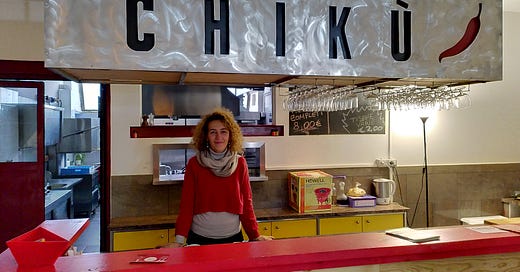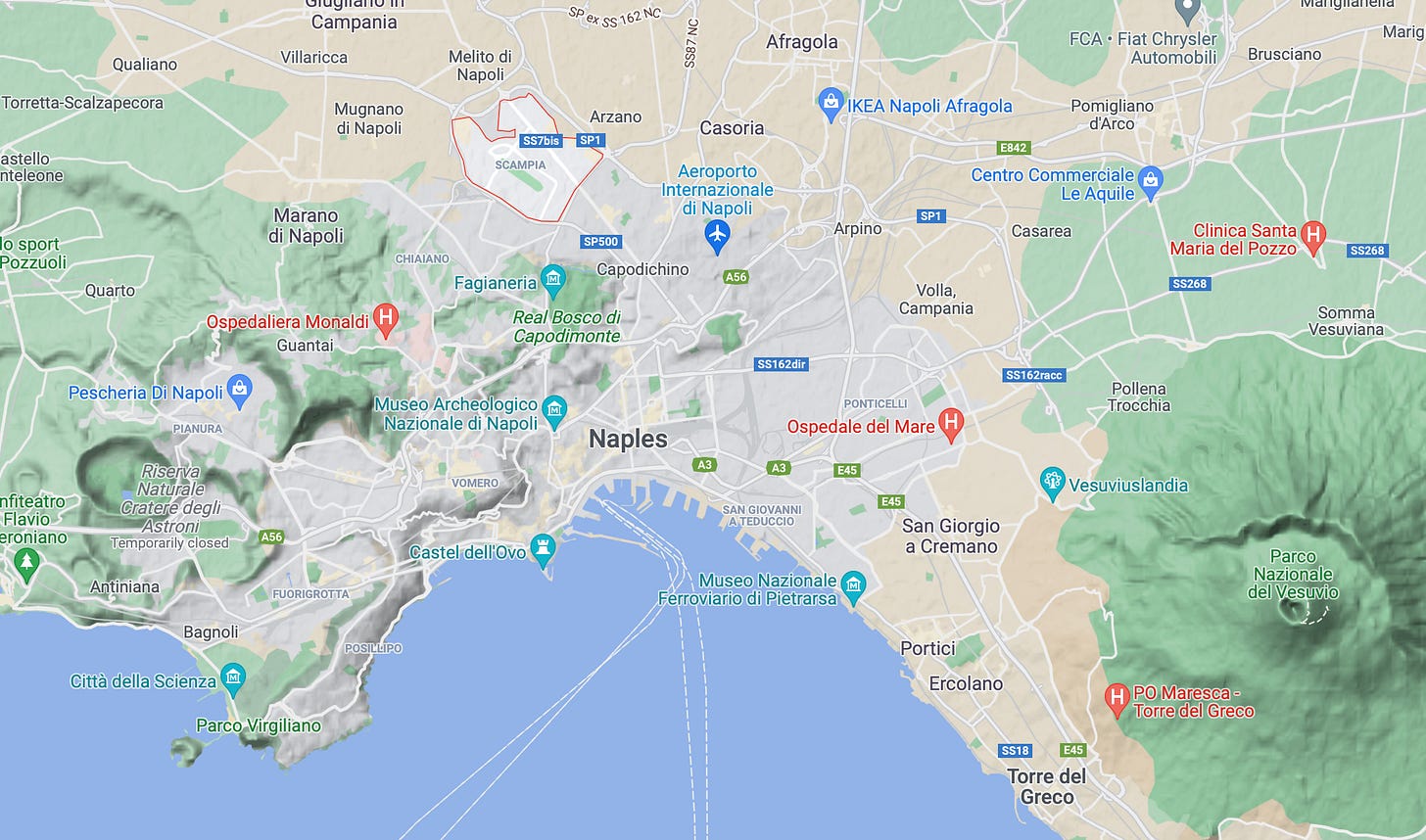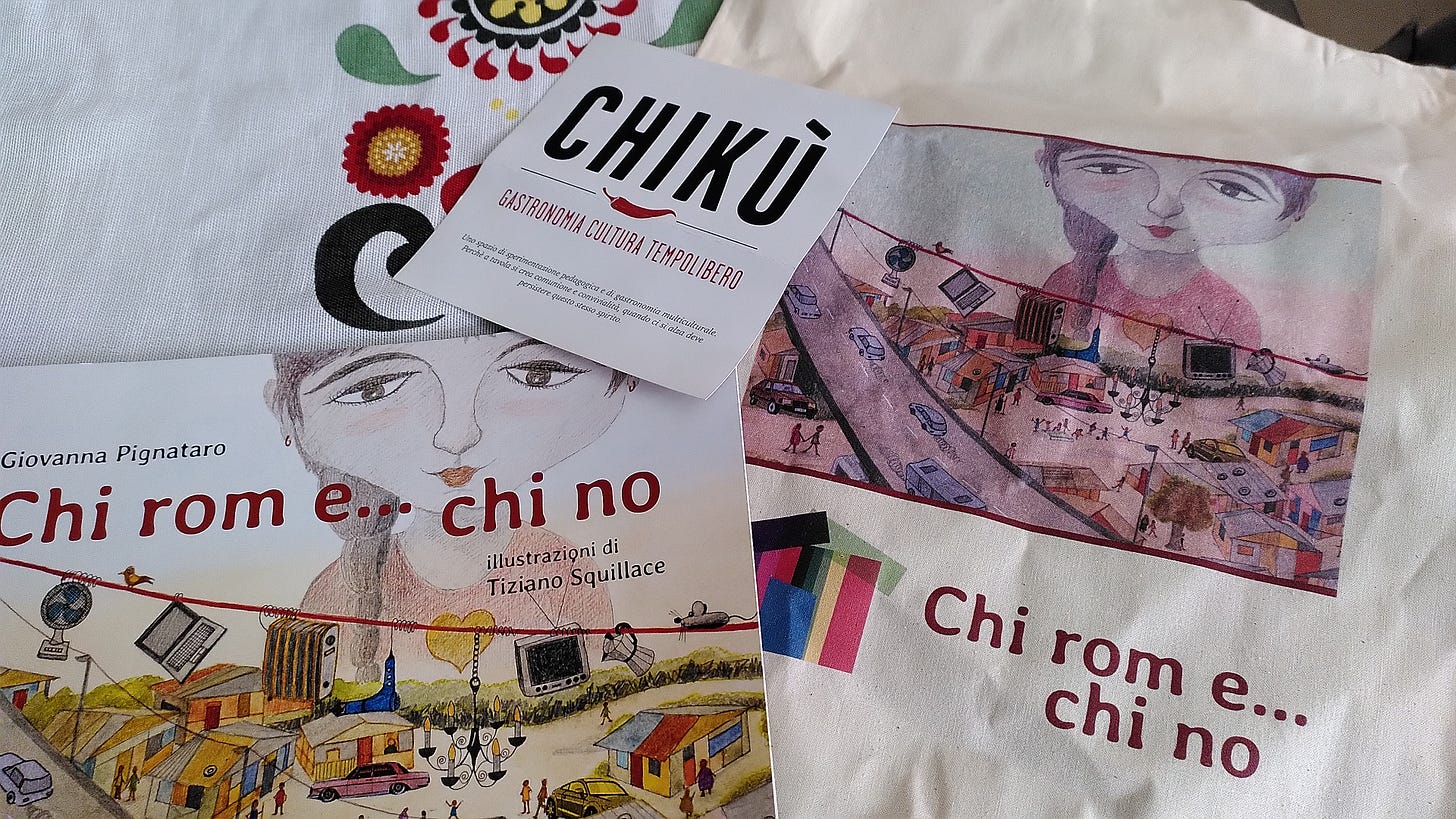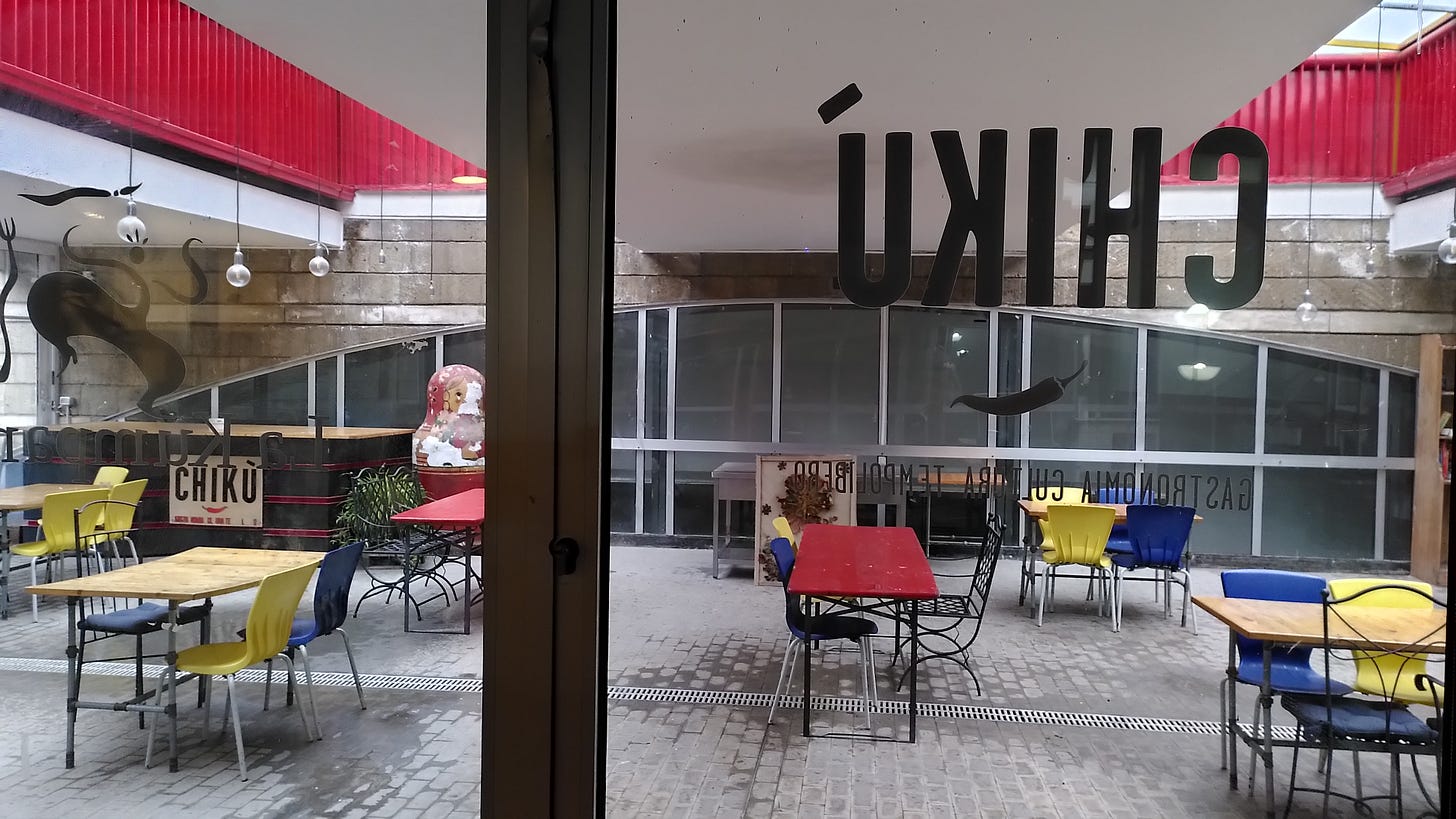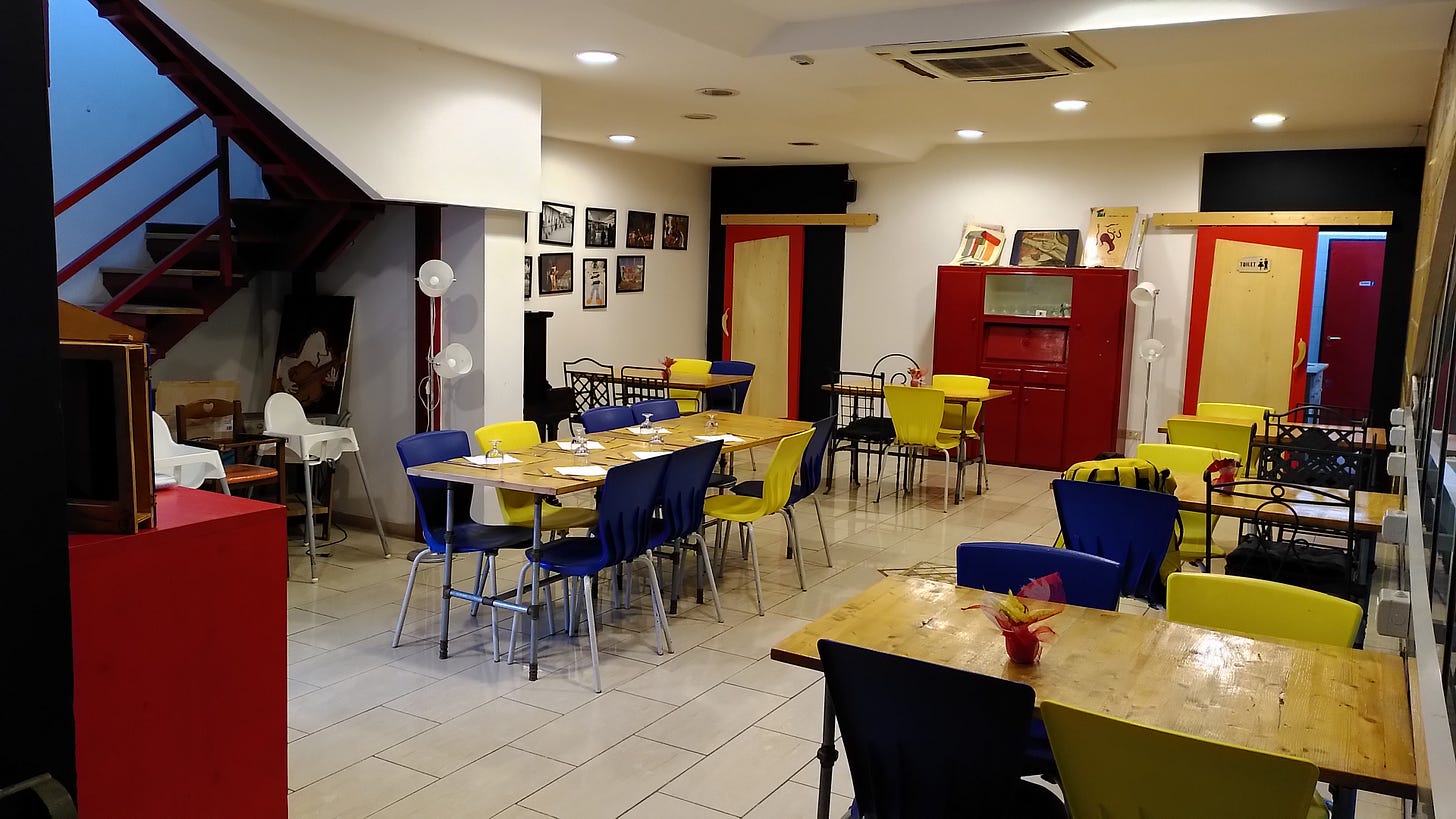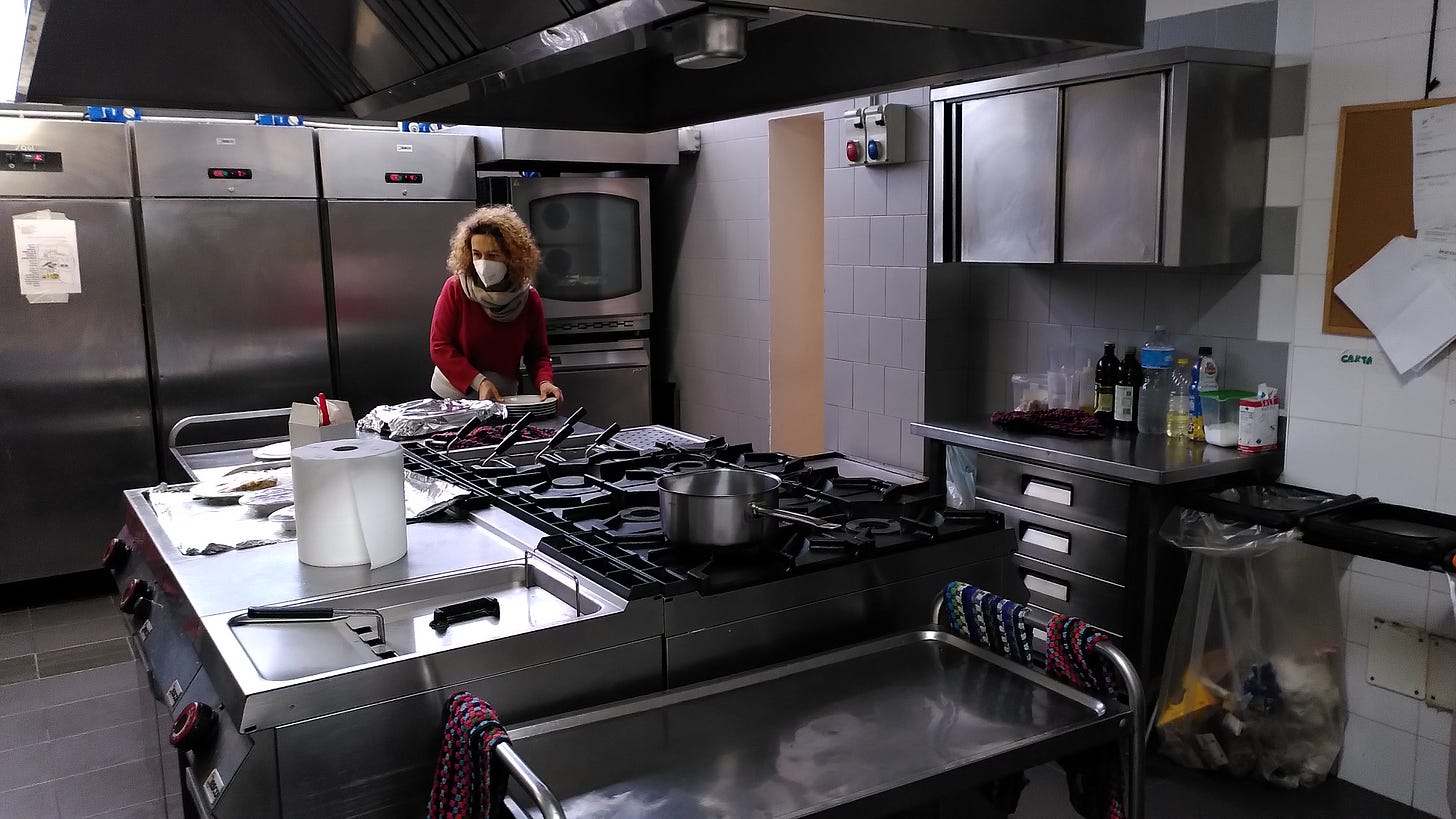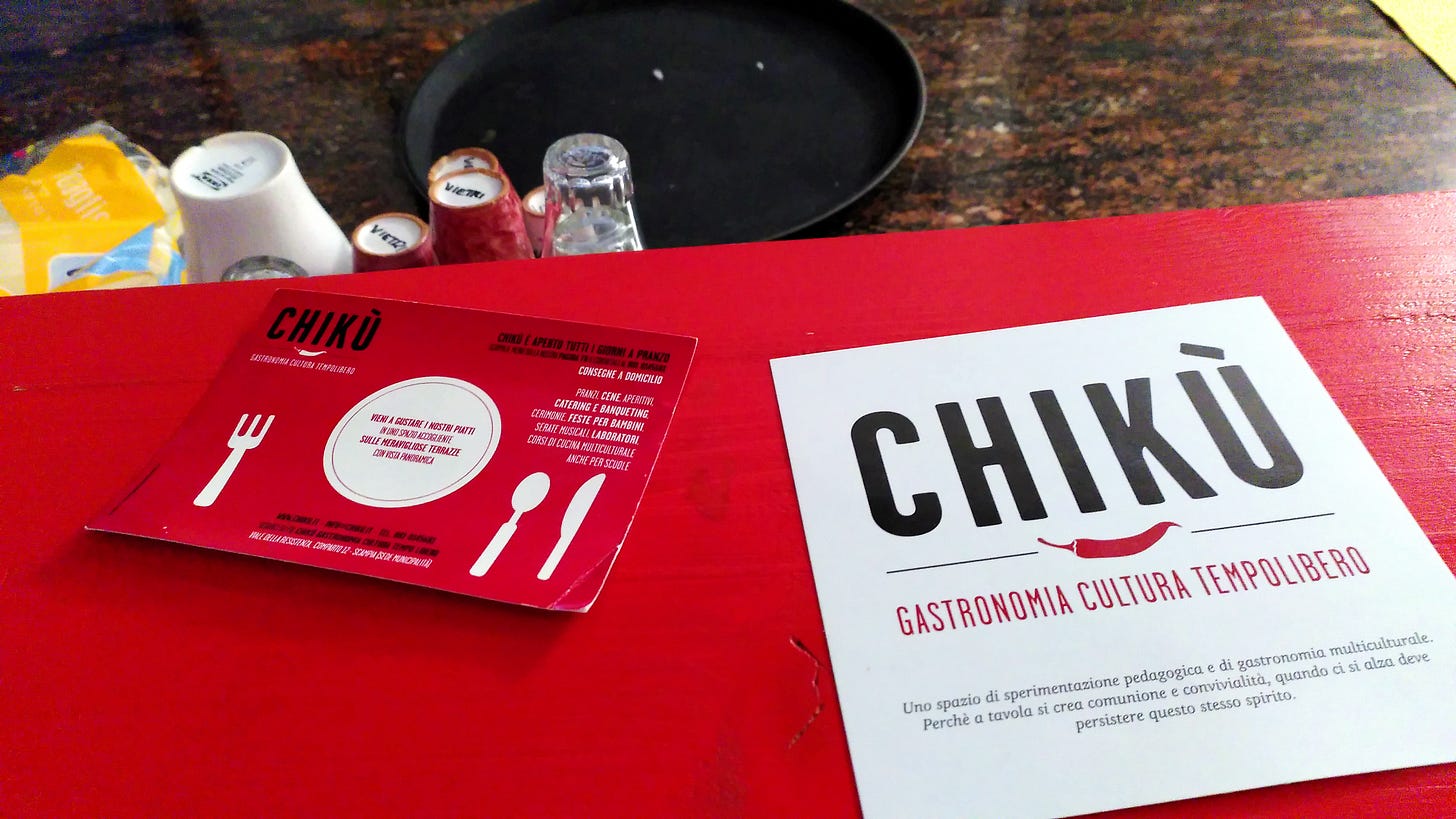S2E17. The Balkans in Naples
Our trip takes us to Scampia neighborhood, where the cultural and gastronomic centre Chikù stimulates social and work inclusion of the Roma community through the universal language of cooking
Hi,
welcome back to BarBalkans, the newsletter with blurred boundaries.
There is a plate of moussaka, sarme with sweet peppers, a slice of ghibaniza and a shot of rakija on the table.
Nothing strange for this newsletter, apparently.
But why do we find all these Balkan specialties in Scampia, a suburb on the north outskirts of Naples?
We have to forget all we know from Gomorra TV series. The soul of the neighborhood must be explained by people who know and live it every day.
Today, our guide is Barbara Pierro, lawyer and president of the association Chi Rom... e chi no.
She makes us discover that Scampia is home to a corner of Western Balkans, thanks to the Roma community that has been established in this suburb for decades.
And, most of all, she tells us how one of the most disruptive realities on the gastronomic scene was born.
We are talking about Chikù, the first Italo-Romani restaurant.
An example of social, cultural and work integration.
A deep-rooted community
«The Roma community in Scampia is longstanding and it comes from the former Yugoslavia», Barbara explains.
The first arrivals date back to the end of the Seventies and continued for the next ten years. At the beginning of the 2000s, the community counted about two thousand people, and used to live where there is now the metro station.
In 2000, an arson destroyed the camp and the community scattered.
Half of the people moved to the first authorized camp, built by the municipality of Naples. The other half moved to an informal camp under the flyover of the provincial road Melito-Scampia.
Barbara points out that «the starting number of people is indicative». No census has ever certified it, «at least until the scandal of the 2008 census based only on ethnicity».
Following two other arsons (the last one in August 2021), the community has scattered again and has been reduced in number. «As the institutions do not intervene to support them, Roma people are living in increasingly worse conditions».
Not only the municipality of Naples, but also Campania region is missing, «despite the fact that it should have already set up regional roundtables with the prefecture, local authorities, associations and Roma communities», according to the National Strategy for Roma Inclusion requested by the EU in 2012.
«By now, there are more than three generations of Roma here, who have been living in Scampia for more than 30 years».
Citizens like Barbara try to support their inclusion in many different ways: «We provide legal assistance to help the new generations acquire Italian citizenship». Since in Italy there is still no birthright citizenship, «they also have to struggle to get the recognition of the owed identity».
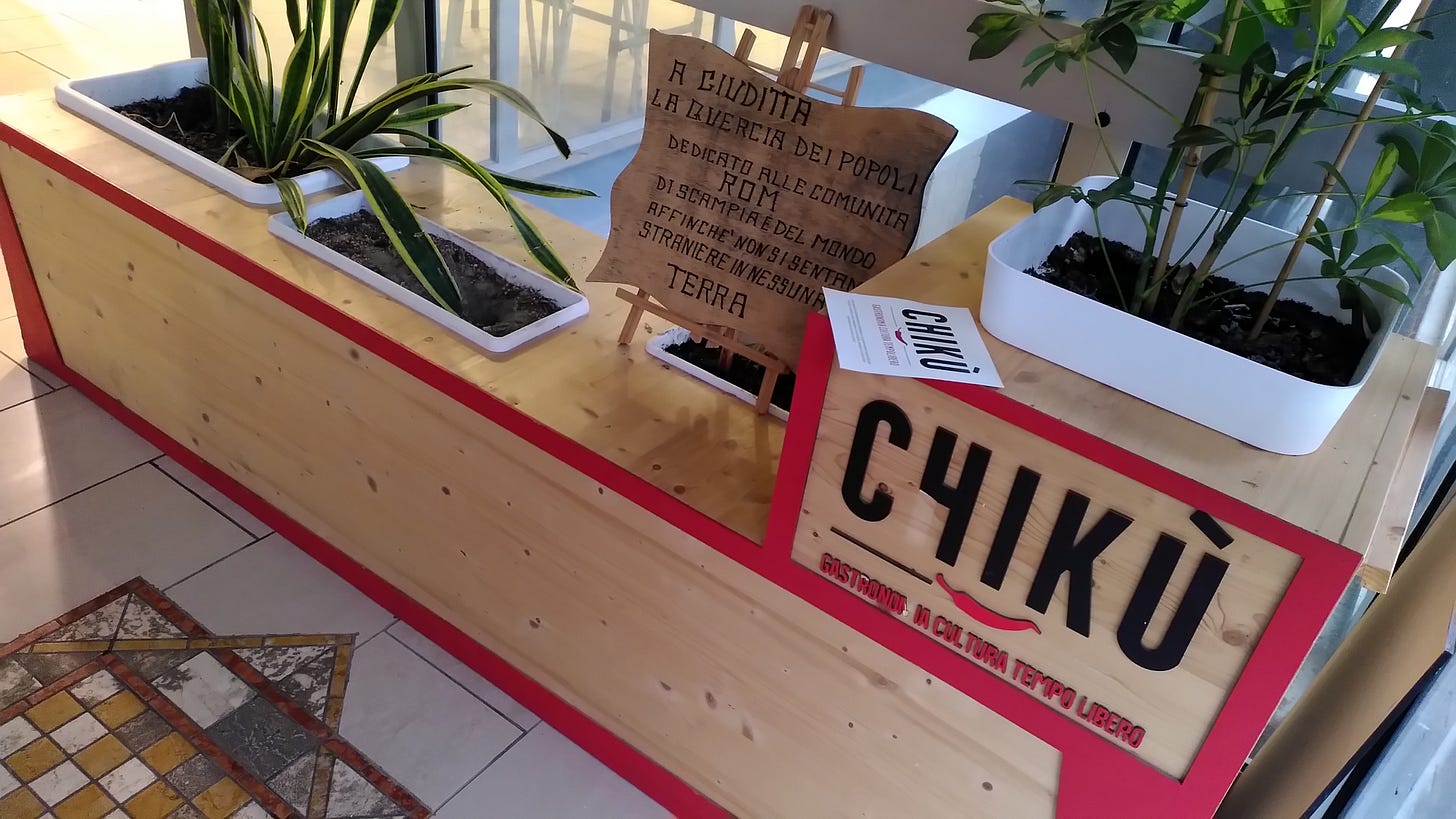
Cultures to bring together
Scampia is a complex neighborhood. Starting from the urban planning: «It is characterized by very wide streets, no meeting points, a huge square with no tree or bench. It is always very difficult to convey information here».
Moreover, the situation of marginality - that can be caused by living in an informal Roma camp or in the Vele (the famous Sails of Scampia) - is likely to lead to «frictions with the possibilities of knowledge and relationships».
As Barbara points out, «there is always the need to find a scapegoat for one’s own uneasiness». A Roma camp nearby «makes it easier».
The picture is not dark, but «full of nuances». Indeed, «where there are opportunities to meet each other and build meaningful relationships, the level of mistrust, stereotyping and discrimination is substantially lowered».
Barbara’s tone of voice becomes more and more passionate as she explains that «when there is dialogue and participation, it is possibile to grow together».
The reason is simple and only someone who lives Scampia every day can witness it so firmly: «Even if this neighborhood is strongly discriminated by the rest of the city, here it is easier to realize that people in front of you experience the same difficulties and fragility as you do, but they also have the same potential and desires».
The Roma community and the rest of the neighborhood have a lot in common. They both arrived in this place at the same time, «when it was built without any kind of service». But they have to fight the same struggles.
This is why the association of social promotion Chi rom... e chi no was founded almost 20 years ago in the Roma camp. The name is a wordplay with ròrme, which in Neapolitan dialect means “sleeps” (so, “who is Roma… and who is not”, can also be “who sleeps… and who does not”).
“We try to be as a beacon of hope, even if sometimes we have to deal with difficulties bigger than the forces we can put in place», Barbara explains.
For example, «if the metro closes at 10:30 p.m. in a suburban neighborhood, it is easy to understand that change will struggle to take root, even if we have quality activities or enviable social networks».
On this matter, the association continues to work consistently. As we can read in an illustrated book published a month ago by Marotta & Cafiero, the publishing house founded by Rosario Esposito La Rossa in Scampia.
«The title is Chi rom... e chi no and tells the story of two girls, one Neapolitan and one Roma, in a continuous parallelism between what happens in the neighborhood and what happens in the camp».
The association founded by Barbara and other citizens is trying to be a pain in the neck to the municipal administration, «because the outskirts cannot be left behind», Barbara says.
The question of work inclusion is crucial.
And this is where Chikù comes on the scene.
The taste of integration
At the same time as Chi rom... e chi no, another association was born in Scampia: Kumpagnia, an unprecedented experience of Roma and Neapolitan women in the field of gastronomy.
From a social project, in 2010 it became a social enterprise, demonstrating its economic sustainability: «We wanted to have a pedagogical-cultural soul, with a gastronomic core».
This is how the cultural and gastronomic centre Chikù was born. This is the first Italo-Romani restaurant, which has found home in the old Scampia theatre café, closed for over ten years.
The name combines Chi rom... e chi no and Kumpagnia. Its mission is «to stimulate empowerment through work, relationship and education».
Barbara is thrilled when she talks about Chikù.
«Economically, it is a gamble to stay here». Scampia is a neighborhood of 40 thousand inhabitants «and Chikù is the only restaurant, along with two takeaway pizzerias».
«This perfectly illustrates how little people spend time on personal relations, conviviality and pleasure of staying here».
If you live in Scampia, when you go out, you go elsewhere.
For those who want a different future for the neighborhood, all of this is a huge challenge for integration. But it unleashes creativity.
«Cooking has become the way to bring people together, thanks to its universal language», Barbara tells us. «It is a neutral ground, but passionating. And then, people are more willing to meet each other and to share something new in front of a set table».
The group of cooks working at Chikù is still the same since 2010: ten women, Roma and Neapolitan.
The COVID-19 pandemic was a shock: «Roma women are the ones who suffered the most, as they live in an informal camp, but also the social enterprise’s activities have been affected».
Chikù has to stay closed for lunch on weekdays, unless there are reservations. Barbara does not hide the harsh post-COVID reality: «We cannot afford to stay open all day long, just hoping that someone will come».
However, the will to resist always prevails: «The catering business still allows us to call many young Neapolitans and Roma people from the neighborhood, as waiters and handymen.
But eventually, what do you eat at Chikù?
«Here you can find traditional Neapolitan dishes: ragù, scarpariello, genovese, fried pizza.
Or typical Balkan dishes: sarme (stuffed rolls), moussaka, ghibaniza (sweet or salty) and couscous, which is prepared in Macedonian area».
And then, Barbara also tells us of «dishes born in the kitchen, through the relationship among cooks, who put together Balkan recipes with products growing in our gardens».
Culinary contaminations never seen before, which «show the potential of meeting of communities with a different past, but a common future».
It is almost certain that integration tastes like moussaka with friarielli.
Pit stop. Sittin’ at the BarBalkans
We have reached the end of this piece of road.
In Scampia, our bar, the BarBalkans, leaves room for the contaminations that make Chikù unique.
«Here you can drink rakija from the Roma community’ Balkan trades, but also the organic Mandarinetto liquor, made by the cooks with mandarins from our gardens».
This is how Barbara greets us. She is as peaceful as somebody who knows that difficulties can be overcome by making a difference in the small things, every day.
Even in the kitchen of a restaurant or at the counter of a bar.
Let’s continue the BarBalkans journey. We will meet again in a week, for the 18th stop.
A big hug and have a good journey!
Did you like this newsletter? Forward it to someone you think might be interested in!
BarBalkans is a free weekly newsletter. Behind these contents there is a lot of work undertaken.
If you want to help this project to improve, I kindly ask you to consider the possibility of donating. As a gift, every second Wednesday of the month you will receive a podcast with an article about the dissolution of Yugoslavia.
Every month you can listen to the preview of BarBalkans - Podcast on Spreaker and Spotify. The next episode will be out on Wednesday, don’t miss it!
Pay attention! The first time you will receive the newsletter, it may go to spam, or to “Promotions Tab”, if you use Gmail. Just move it to “Inbox” and, on the top of the e-mail, flag the specific option to receive the next ones there.
As always, I thank you for getting this far with me. Here you can find all the previous newsletters.
BarBalkans is on Facebook, Twitter and Instagram. The updated archive is on Linktree.

